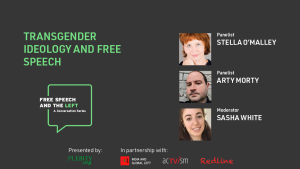
Gula (Gluttony) by Pieter Bruegel the Elder. Engraving, 225 x 295 mm
Written 2,500 years ago, the Hippocratic Oath is one of the oldest and most sacred documents in history. The oath of ethics is taken by new physicians, though it has undergone a number of revisions since its inception.
Reinventing the Oath of Ethics
While medical schools still use some modified version of the Hippocratic Oath, many medical schools, including Harvard, Yale, and the University of Texas are now allowing students to write their own oaths. At the University of Pittsburgh, the graduating class of 2024 wrote an oath of ethics with a social justice bent. One of the clauses states: “I will be an ally to those of low socioeconomic status, the BIPOC community, the LGBTQIA+ community, womxn/women, differently-abled individuals and other underserved groups in order to dismantle the systemic racism and prejudice that medical professionals and society have perpetuated.” Another clause states, “I will champion diversity in both medicine and society, and promote an inclusive environment by respecting the perspectives of others and relentlessly seeking to identify and eliminate my personal biases.” (The University of Pittsburgh is the same institution that demoted Norman Wang, a cardiologist who published a paper criticizing diversity initiatives in cardiology).
These clauses reflect a changing culture in medicine. By selectively using certain social justice terms du jour like ‘womxn,’ ‘LGBTQIA+,’ and ‘BIPOC,’ these new physicians are already operating within the parameters of a certain ideology that is not necessarily reflected in the beliefs of their patients. This ideology is not based on observable, material reality, but on an arbitrary set of beliefs created by diversity, equity, and inclusion (DEI) “consultants” (read: grifters) who stand to profit off of this brave new woke world.
As we have seen in recent years, social justice ideology has a way of undermining established science, like when The Lancet – a prestigious medical journal – referred to women as “bodies with vaginas” in a bid to be inclusive, or when the New England Journal of Medicine (NEJM) published articles claiming puberty blockers are a ‘settled science’ and that sex designations on birth certificates offer no ‘clinical utility’ and only serve ‘legal not medical goals.’
These examples of dogma are seeping into a field that once endeavored to promote science, but has since succumbed to a prevailing set of “truths” manufactured by social justice proponents. Physicians are now encouraged to validate and affirm the patient, taking a ‘customer is always right’ approach to care.
An article in Focus, a psychiatry journal, describes the affirmation model as “an approach to health and behavioral health care that validates and supports the identities stated or expressed by those served. Affirmative care requires the practitioner to honor and celebrate identity. . . Understanding and empathizing with the felt discrimination, otherness, microaggressions, and victimization experienced by individual clients is critical to the role of the affirmative practitioner.” If a physician does not affirm a patient’s beliefs or identity, they run the risk of being ostracized from their peers, being cancelled, losing their medical license and their livelihood.
A number of medical professionals and students have spoken out about these risks, but have chosen to remain anonymous precisely because they fear retribution. But the main problem with this affirmation model is that it doesn’t necessarily serve the patients – it can be confusing, medically inaccurate, and even harmful to the patient to adhere to a set of beliefs that don’t align with a patient’s material reality. For example, there is no medical need for a pre-op trans woman to see a gynecologist, yet some argue that it’s necessary for validation, and that gynecologists who refuse to treat pre-op trans women are transphobic.
Indeed, this shift towards accommodating social justice over material reality is not new. The pandemic has deepened the cracks caused by advancing social justice causes at the expense of providing proper treatment. The Fat Acceptance movement is the most pervasive example of this.
The Origins of Fat Acceptance
Pre-pandemic, we were primed to believe that ‘thin privilege’ upholds white supremacy and that fat phobia has racist origins. The Health at Every Size (HAES) movement originated in the 1960s, and was popularized in the 2000s with the release of Lindo Bacon’s book Health at Every Size: The Surprising Truth about Your Weight in 2008. Lindo (formerly Linda) Bacon, a HAES practitioner, frames health from a “social justice/systems-oriented” lens.
The goal of HAES is to end weight discrimination, promote size acceptance, and reduce weight stigma. These ideas are reasonable, but they’ve been overshadowed by a glaring problem among the HAES movement: the belief that obesity is not unhealthy at all. “It’s okay to be obese if you’re taking care of yourself and your health,” says HAES advocate, nutrition therapist, and author Ellen Glovsky, despite decades of research that proves otherwise.
According to HAES activists, your body size is largely genetically determined. HAES advocates often cherry-pick data to push this narrative. For example, they often reference a study that found that the heritability of obesity ranges between 70-80 percent, though they don’t clarify what ‘heritability’ means. “Heritability” does not mean “genetically fated,” nor does it indicate what proportion of a particular trait is genetically or environmentally determined, but because of the way this statistic is framed, it sounds like heritability is a genetic marker, which relinquishes people from all personal responsibility to take control over their health. To HAES proponents, morbid obesity is not a health issue, but a social one. And it’s not the fault of the obese person, it’s the systems in place that made them obese. Their obesity was caused by systems of oppression, not by their unhealthy lifestyle. Therefore, we must learn to accept fatness as a by-product of an oppressed system.
The irony is not lost on me that HAES advocate Lindo Bacon – whose pronouns are they/them/theirs – also adheres to gender ideology. Many fat acceptance activists overlap with gender ideology activists – an unsurprising trend considering both groups unilaterally reject science in favor of advancing social justice ideology. (Lindo also supports men in women’s prisons, and refers to fat people as ‘fat folx’ (the ‘x’ is supposed to “bring explicit attention to inclusion of all”).
Accepting Hard Truths
By framing obesity within a social justice lens, we have made it socially unacceptable to accept, let alone acknowledge, hard truths, like the fact that obesity severely exacerbates COVID symptoms for people exposed to the virus, and that 78% of Americans hospitalized from COVID are overweight or obese.
In the US, obesity is the second leading cause of death, and accounts for almost half of chronic diseases. Over 42% of America is obese, and obesity-related conditions including heart disease, stroke, and type 2 diabetes are among the leading causes of preventable, premature death. Obesity puts a massive strain on the economy, costing $147 billion annually in the US, and some $9 billion per year in Canada. Chronic illnesses caused by obesity cost the US health care system $3.8 trillion annually.
As shocking as these statistics are, they haven’t done much in the way of spurring action. Quite the opposite, corporations and retailers continue to cash in on the obesity epidemic amid an ongoing pandemic, like Old Navy, who recently launched a ‘fashion revolution’ by carrying sizes 0-28 in their stores as part of their #BODEQUALITY campaign. In an Instagram post, an Old Navy employee said, “We’re not glorifying obesity, we’re just celebrating people’s bodies.” This infantilizing rhetoric of ‘celebration’ and ‘validation’ shields people from criticism, even if warranted. Financially, it’s a smart move for the retailer considering over 40% of Americans are obese, and less than three percent of Americans live a healthy lifestyle according to a 2016 Mayo Clinic study.
The Nutrition Education Gap
“Let food be thy medicine and medicine be thy food.”
“Leave your drugs in the chemist’s pot if you can heal the patient with food.”
“All disease begins in the gut.”
Hippocrates formulated these aphorisms based on the belief that nutrition plays a key role in preventing disease. Despite being thousands of years old, these aphorisms remain just as relevant today.
Unfortunately, much like the next generation of physicians who abandoned the Hippocratic Oath, nutrition continues to be largely ignored in modern medicine. Despite being a large driver of preventative illnesses, nutrition is not being taught in medical schools. A 2015 study of 121 medical schools found that 71% didn’t require at least 25 hours of nutrition education, and fewer than 20% required a nutrition course.
A century ago, Dr. Edward C. Cornwall warned about the state of nutrition education. He wrote, “Dietotherapy is a very old branch of medicine, perhaps the first to know scientific development. Savage man, like the animals, learned to stop eating or to change his diet when sick . . . But dietotherapy has not kept up the pace of its early promise. If we examine recently published text books on the practice of medicine, we find the directions given for diet for the most part meager and vague. Most physicians know little about diet and care less.”
Cornwall prophesied that diet and nutrition would take a back seat to Big Pharma in modern medicine – his predictions were right. The first half of the 20th century was dubbed the ‘Golden Age of Medicine’ thanks to advances in surgical tools, antimicrobials, vaccines, and other scientific achievements. Today, modern medicine continues to be propped up by powerful lobbyists and profit-driven corporations that depend on treating symptoms, not on tackling root causes of preventative illnesses.
Other physicians have also advocated for a preventative approach, including cardiologist Wilhelm Raab. At a cardiology conference in 1964, Dr. Raab advocated for a preventative approach to health, with a focus on physical activity, diet, and mental health. He also advocated for a plant-based diet, which was not in the mainstream discourse then. His approach, unsurprisingly, remains largely ignored today.
These problems that we have long ignored are compounded by a medical community that is now going ‘woke’ at the expense of science, where providing proper care to obese patients is ignored in favor of affirmation. Even the medical terms ‘obese’ and ‘morbidly obese’ are now considered stigmatizing and blaming. At the very least, we should be asking ourselves what an affirmation approach may look like for patients? Will such an approach reduce preventative illnesses? Who does this approach benefit?
We’ve had almost two years to take a multi-pronged, preventative approach to fighting COVID, yet still, to this day, very few acknowledge how our lifestyle choices can exacerbate or impede COVID symptoms. There was no widespread healthy eating campaign, no initiatives extolling the benefits of regular exercise, no sugar-free challenges – nothing. Instead, the medical community continues to churn out ideologically-driven articles that cater to social justice causes, and ignores the obesity pandemic. And the media plays along by posting articles like this: “Why these women say it’s time to embrace fat bodies,” in the middle of a pandemic that we know disproportionately impacts people who are obese. It should be noted that obesity levels have also risen substantially amid the pandemic. A CDC study found that obesity rates among children rose to 22%, compared to 19% pre-pandemic. An American Psychological Association (APA) survey found that more than two in five surveyed adults (42%) gained more “weight than intended over the past 12 months.” Another survey suggests that nearly 1 in 5 Americans are reportedly ‘heavy drinking.’ In Canada, the Canadian Centre on Substance Use and Addiction found that 1 in 4 Canadians aged 35-54 are drinking more, and experts fear these drinking habits will increase cases of fetal alcohol spectrum disorder (FASD).
But we’re not allowed to mention these truths, lest we want to cause ‘harm.’
Jonathan Neman, co-founder and CEO of Sweetgreen, found out the hard way. Neman wrote in a now-deleted LinkedIn post: “78% of hospitalizations due to COVID are Obese and Overweight people. Is there an underlying problem that perhaps we have not given enough attention to? Is there another way to think about how we tackle “healthcare” by addressing the root cause?” Neman suggested prioritizing overall health vs. preventing infection through ‘health mandates’ and taxes on junk food.
His post sparked outrage online, with some claiming his post is ‘disgusting’ and ‘fat phobic.’ Others claimed he is anti-science because he doesn’t follow their Science™. And herein lies the issue: science is now an ideological minefield. We pick and choose which Science™ to follow based on the current political climate. And in this climate, any attempts to sound the alarm on preventative illnesses like obesity are hand-waved away, and dismissed as ‘phobia.’
Blaming the Unvaccinated for a Sick Society
We obscure hard truths and pick and choose what health issues we want to put in the spotlight – and right now the trend is to scapegoat the deplorables, i.e. the Unvaccinated. Businesses are going under? Blame the unvaccinated. The public health crisis is at an all-time high? Blame the unvaccinated on that, too. There’s misinformation online? Unvaccinated people are responsible. And on it continues. The propaganda machine – with the help of a fearful populace – has successfully demonized the unvaccinated, despite emerging studies revealing that COVID death rates have been 10 times higher in countries where more than half of the population is overweight. This critical link is ignored because it doesn’t align with the official ideology: Unvaccinated = bad. The accepted rhetoric is to shame and purge the Unvaccinated from civil society and once that is done, all will be well again – at least that’s the promise state leaders and health officials have been dangling in front of us for months.
While there are statistical anomalies of healthy people dying from COVID, this “Pandemic of the Unvaccinated” narrative revealed that most of us vastly overestimate how healthy we are. In a society where most people are overweight or obese, the truly revolutionary act is resisting a capitalist food system designed to make us addicted, not celebrating a retailer for lining its pockets on the backs of sick people.
Putting the responsibility solely on the unvaccinated ignores the global sickness crisis that has been brewing under the surface long before COVID. And by allowing physicians to DYI their own oath of ethics to prioritize ideology over science, we are establishing a dangerous precedent. Oaths of ethics must withstand the test of time, fleeting trends, and ideology. We may not be willing to confront reality now, but if we are unable to remove dogma from medicine, we are going to be dealing with the effects of a sick society for many years to come.
Please consider joining our Patreon community if you haven’t already! Patreon subscriptions and direct donations are our sole source of revenue.




